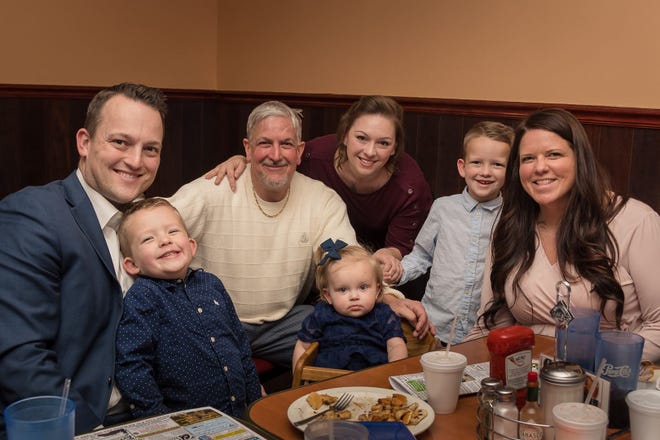
David Bennett, 57, who received a pig heart in January in place of his own failing one, died Tuesday.
It’s not yet clear precisely what caused Bennett’s death, according to the University of Maryland Medical Center, where he received the transplant Jan. 7 and had been recovering since. He began deteriorating in recent days and the hospital announced his death Wednesday.
Bennett was the first patient ever to receive an animal organ genetically modified to prevent rejection in a person.
There was no obvious cause identified at the time of his death, hospital spokeswoman Deborah Kotz said, and researchers plan to conduct a thorough review of his death and publish the results in a peer-reviewed journal.
“We are devastated by the loss of Mr. Bennett. He proved to be a brave and noble patient who fought all the way to the end. We extend our sincerest condolences to his family,” Dr. Bartley Griffith, surgeon who led Bennett’s transplant said in a statement. “Mr. Bennett became known by millions of people around the world for his courage and steadfast will to live.”
The investigative surgery, although it only added two months to Bennett’s life, informed the field of xenotransplantation, which hopes to help solve the human organ shortage.
“We have gained invaluable insights learning that the genetically modified pig heart can function well within the human body while the immune system is adequately suppressed,” Dr. Muhammad Mohiuddin, an expert in interspecies transplants who was involved in Bennett’s care and at the University of Maryland School of Medicine, said in a statement. “We remain optimistic and plan on continuing our work in future clinical trials.”

The history of medicine is filled with examples of experimental procedures that did not make a substantial difference in the first few patients, but eventually transformed medicine. Organ transplantation itself remained largely experimental from the 1950s until the mid-1980s and now about 40,000 are performed annually in the United States alone.
The transplant raised ethical concerns among animal rights activists, who believe animals should not be sacrificed for human benefit, and among some who objected to Bennett, who had served time in prison for attacking a man with a knife, receiving a life-extending procedure.
Bennett was bedridden and on a heart-lung bypass machine at the University of Maryland Medical Center from October 2021 until the transplant surgery.
He was not eligible for a human heart transplant because he had not been compliant with earlier medical recommendations. Studies have shown that patients who do not follow doctors’ orders do not do well with an organ transplant and only a very limited number of human hearts are available for transplant.
Bennett was also not a good candidate for an artificial heart pump, because of an erratic heart beat.
When he learned he had no other options, he agreed to be the first person to receive a gene-edited pig heart, which he hoped would be a bridge until he could prove himself worthy of a human heart.
His new heart performed well for weeks, without any signs of rejection. Extremely weak from so much time in bed, Bennett was receiving rehabilitation and was able to sit up and watch the Super Bowl, with his physical therapist, even singing along with a performance of “America the Beautiful.”
He often told his caregivers how much he wanted to get home to his dog Lucky.

Bennett’s son, David Bennett, Jr., speaking for the family, thanked the hospital and doctors for his care.
“Their exhaustive efforts and energy, paired with my dad’s insatiable will to live, created a hopeful environment during an uphill climb,” he said in a statement. “We were able to spend some precious weeks together while he recovered from the transplant surgery, weeks we would not have had without this miraculous effort.”
His son also said he hopes his father’s experience will eventually help many others live far longer with transplanted pig organs.
“We hope this story can be the beginning of hope and not the end,” he said. “We pray that those looking for hope will continue to fight for the future, fight for new ideas, fight for answers, fight for life. Fight like Dave.”
Contact Karen Weintraub at kweintraub@usatoday.com.
Health and patient safety coverage at USA TODAY is made possible in part by a grant from the Masimo Foundation for Ethics, Innovation and Competition in Healthcare. The Masimo Foundation does not provide editorial input.
